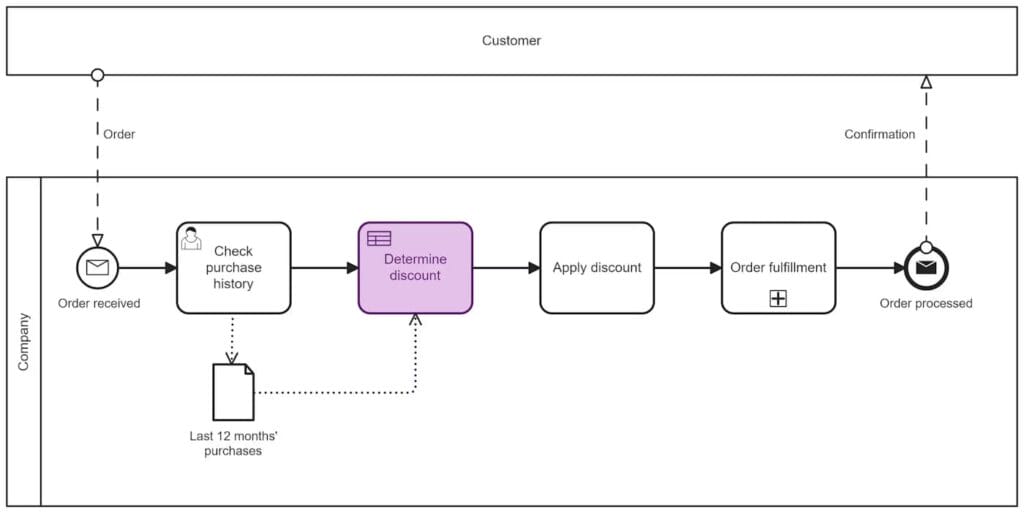The Decision Model and Notation (DMN) standard provides a clear and executable way to represent business rules. Business rule tasks can clarify and enhance Business Process Model and Notation (BPMN) models.
But what, exactly, is a business rule?
Business Rules
A business rule is a specific, actionable, and testable directive that is under the control of a business and serves to guide or constrain business operations.
The following are examples of business rules:
All loyal customers who have made purchases exceeding $5,000 in the last year are entitled to a 10% discount on their next purchase.
Full-time employees accrue 2 days of leave per month. Part-time employees accrue 1 day of leave per month.
Orders over $500 must be verified by a manager before processing.
These are not business rules:
Try to be nice to customers.
Our company seeks to be the global leader in technology innovation.
It’s good to diversify investments.
Business Rule Tasks
The activity highlighted in the following model is a business rule task:

A business rule task
In this example, the task is linked to a DMN model that specifies the relationship between the cumulative value of the customer’s purchases over the last 12 months and the discount to be applied to the current order.

The Decision Requirements Diagram (DRD)

